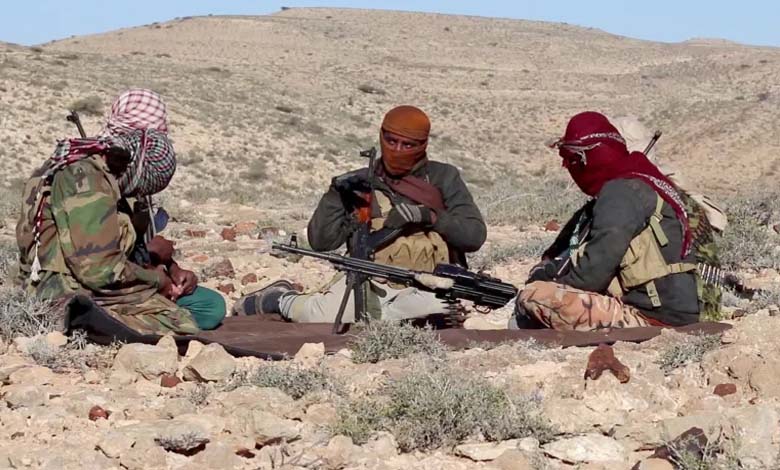How the Somali Branch of ISIS Managed to Build an Influence Network Beyond Local Borders?

The ISIS branch in Somalia has successfully built an influence network that extends beyond local borders. Originally a breakaway faction from the Al-Shabaab group, which is affiliated with Al-Qaeda, the Somali branch has evolved into a growing force within the global ISIS network, posing an increasing threat at both the regional and international levels.
-
The Strongman of ISIS is a Mysterious Somali Financier… Learn About Him
-
After shifting its weight to Africa, could Somali Abdulkadir Mumin become the next leader of ISIS?
This rise in capabilities and expansion of influence has led to intensified military efforts to counter the group. According to a report published by Al-Hurra, U.S. forces have conducted airstrikes targeting the group’s strongholds in northern Somalia, resulting in the elimination of key ISIS leaders, as announced by the Puntland regional government on Sunday.
According to Al-Hurra, since its establishment in 2015 by Abdul Qadir Mumin, ISIS-Somalia has managed to build a strong financial network and establish a strategic presence in the northern mountains, transforming it into a key player in the global ISIS network, as confirmed by experts and recent international reports.
-
Somalia: Political crisis and terrorism
-
UN Security Council calls for the end of Somalia political crisis
However, ISIS’s presence in Somalia remains relatively limited compared to Al-Shabaab, the dominant extremist group linked to Al-Qaeda. Nonetheless, the United Nations warned this year of increasing activity by ISIS-affiliated groups in the country.
ISIS-Somalia follows the radical interpretation of Sharia law that ISIS promotes and aims to expand its so-called caliphate across Africa.
This growing influence has led to heightened military responses, including U.S. airstrikes targeting its strongholds, resulting in the elimination of key leadership figures, according to Puntland authorities.
-
Mauritania Warns: The “African Sahel” Region among the World’s Most Severe Crisis Hotspots
-
Global Turmoil Gives ISIS a Chance to Resume Its Terrorist Activities… How?
Since its founding in 2015 by Abdul Qadir Mumin, ISIS-Somalia has solidified its financial networks and reinforced its presence in the northern mountains, positioning itself as a crucial part of the global ISIS network.
Despite its smaller footprint compared to Al-Shabaab, the UN has raised concerns about the increasing activity of ISIS-affiliated groups in Somalia.
The group employs small arms and improvised explosive devices (IEDs) to conduct targeted assassinations and sporadic attacks against Somali government officials, security forces, and civilians linked to the government.
-
Somalia Praises UAE’s Support in Fighting Terrorism
-
What are the Reasons Behind the Increase in ISIS Activity in Africa and What are the Scenarios for its Defeat?
ISIS-Somalia also faces opposition from Puntland security forces, the African Union peacekeeping mission in Somalia, and business owners who refuse to comply with its extortion demands, according to the International Terrorism Guide of the U.S. National Counterterrorism Center.
In this context, Aliya Al-Alani, a researcher specializing in extremist groups, has emphasized that ISIS activity in Africa has been continuously rising since its defeat in Syria and Iraq.
In a statement to Al-Hurra, he noted that 50% of ISIS’s global operations are now concentrated in Africa.
-
Somalia increases pressure on Ethiopia over sovereignty dispute
-
Is South Africa the Financial Hub for ISIS in Africa?
The security expert argues that past declarations about the complete eradication of ISIS were inaccurate, as they failed to account for its ability to reposition itself in new regions, which has materialized in Africa.
Regarding Somalia, Al-Alani highlights that the country offers an ideal environment for ISIS due to its long-standing conflicts and the presence of other extremist groups, notably Al-Shabaab.
A recent CTC Sentinel report by researcher Jessica Davis estimates that ISIS-Somalia generates around $6 million annually, which, despite the group’s relatively small size, is sufficient to sustain its operations.












